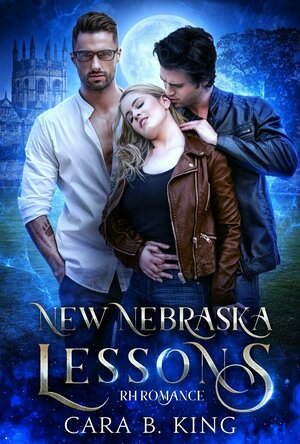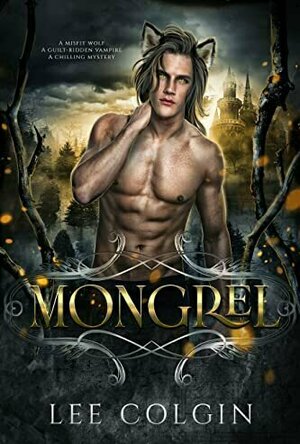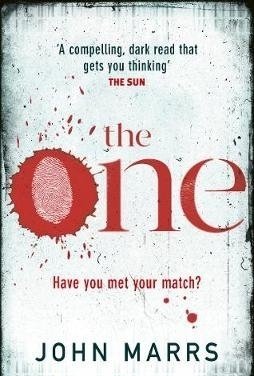Search
Hazel (2934 KP) rated Secrets of a Serial Killer in Books
Jul 5, 2020
This is the chilling, creepy and unnerving story of a serial killer, his victim, her mother and 2 young children out for a bit of an adventure amongst the ruins of an old mental hospital in the north west UK city of Lancaster.
Told from multiple points of view, this is a pretty fast moving book, once the usual introductions to the various characters has been completed, and what a great cast of characters the author has created here. The author is also clearly adept at describing the eerie setting and at creating atmosphere ... I was transported to the old hospital, the derelict caravan and the woods surrounding them. The tension and fear in each of the characters is really well told and builds and builds throughout until the gripping and nail-biting conclusion.
Although I enjoyed this book, I do have a few issues that prevent this from being a 5 star read - there was next to nothing regarding the Police input or investigation and they came across as being inept and pretty useless, particularly at the end but I won't go into it here as it would be a spoiler but you will see what I mean when you read it. Also, the blog posts inserted at various points didn't really do anything for me or add to the story that much and I wonder if they were put there as a red-herring?
Despite the niggling issues, this is a creditable and decent debut and even though there are a few unanswered questions, in addition to the cliff-hanger, they are either left to the imagination of the reader or are going to be resolved in another instalment? If so, I would definitely read it.
My thanks go to HarperCollinsUK and One More Chapter via NetGalley for my advance copy in return for an unbiased and unedited review.
Told from multiple points of view, this is a pretty fast moving book, once the usual introductions to the various characters has been completed, and what a great cast of characters the author has created here. The author is also clearly adept at describing the eerie setting and at creating atmosphere ... I was transported to the old hospital, the derelict caravan and the woods surrounding them. The tension and fear in each of the characters is really well told and builds and builds throughout until the gripping and nail-biting conclusion.
Although I enjoyed this book, I do have a few issues that prevent this from being a 5 star read - there was next to nothing regarding the Police input or investigation and they came across as being inept and pretty useless, particularly at the end but I won't go into it here as it would be a spoiler but you will see what I mean when you read it. Also, the blog posts inserted at various points didn't really do anything for me or add to the story that much and I wonder if they were put there as a red-herring?
Despite the niggling issues, this is a creditable and decent debut and even though there are a few unanswered questions, in addition to the cliff-hanger, they are either left to the imagination of the reader or are going to be resolved in another instalment? If so, I would definitely read it.
My thanks go to HarperCollinsUK and One More Chapter via NetGalley for my advance copy in return for an unbiased and unedited review.
Lyndsey Gollogly (2893 KP) rated Born of Hatred (The Hellequin Chronicles #2) in Books
Dec 5, 2020
Contains spoilers, click to show
201
Kindle
Born of Hatred ( The Hellequin chronicles book 2)
By Steve McHugh
There was a time when Nathan Garrett was feared. When the mention of his name was enough to stop his enemies in their tracks. That time has long since passed.
When Nathan's friend asks for help investigating a pattern of horrific crimes, he reluctantly agrees. But his investigation leads to a serial killer who is something more, or less, than human, a creature of pure malevolence and hatred.
There are some things that even a 1600-year-old sorcerer hesitates to challenge. But when evil targets those Nathan cares about, his enemies will discover exactly who Nathan used to be. And why they will learn to fear him once more.
Born of Hatred is an action-packed, Urban Fantasy set in modern-day England with historical flashbacks to late nineteenth century Montana. It's the second book of the Hellequin Chronicles, following the widely praised Crimes Against Magic, which introduced sorcerer Nathan Garrett. I did t think I could enjoy the second as much as the first, I was so wrong!
Loved it!! Written by a Brit the character is English it’s set in England and what’s not to love about Nate!! I love the bloke he’s powerful and funny! This one be brings Hades and Persephone In to the picture and I absolutely love all Hades parts in books! The werewolf pack are brilliant, Tommy and Kasey are great I even warmed to Olivia!! Shame about the romance not working out but a mere mortal isn’t enough for our Nate! The big bad was really chilling along with his ghouls and the barren! We are one step closer to finding the assholes in Avalon. Brilliant read! Ooo and yes the Hellequin is back!!!
Kindle
Born of Hatred ( The Hellequin chronicles book 2)
By Steve McHugh
There was a time when Nathan Garrett was feared. When the mention of his name was enough to stop his enemies in their tracks. That time has long since passed.
When Nathan's friend asks for help investigating a pattern of horrific crimes, he reluctantly agrees. But his investigation leads to a serial killer who is something more, or less, than human, a creature of pure malevolence and hatred.
There are some things that even a 1600-year-old sorcerer hesitates to challenge. But when evil targets those Nathan cares about, his enemies will discover exactly who Nathan used to be. And why they will learn to fear him once more.
Born of Hatred is an action-packed, Urban Fantasy set in modern-day England with historical flashbacks to late nineteenth century Montana. It's the second book of the Hellequin Chronicles, following the widely praised Crimes Against Magic, which introduced sorcerer Nathan Garrett. I did t think I could enjoy the second as much as the first, I was so wrong!
Loved it!! Written by a Brit the character is English it’s set in England and what’s not to love about Nate!! I love the bloke he’s powerful and funny! This one be brings Hades and Persephone In to the picture and I absolutely love all Hades parts in books! The werewolf pack are brilliant, Tommy and Kasey are great I even warmed to Olivia!! Shame about the romance not working out but a mere mortal isn’t enough for our Nate! The big bad was really chilling along with his ghouls and the barren! We are one step closer to finding the assholes in Avalon. Brilliant read! Ooo and yes the Hellequin is back!!!
Lyndsey Gollogly (2893 KP) rated Killman Creek: Stillhouse Lake Series in Books
Aug 19, 2020
Contains spoilers, click to show
150 of 200
Kindle
Killman Creek ( Stillhouse book 2)
By Rachel Caine
Every time Gwen closed her eyes, she saw him in her nightmares. Now her eyes are open, and he’s not going away.
Gwen Proctor won the battle to save her kids from her ex-husband, serial killer Melvin Royal, and his league of psychotic accomplices. But the war isn’t over. Not since Melvin broke out of prison. Not since she received a chilling text…
You’re not safe anywhere now.
Her refuge at Stillhouse Lake has become a trap. Gwen leaves her children in the protective custody of a fortified, well-armed neighbor. Now, with the help of Sam Cade, brother of one of Melvin’s victims, Gwen is going hunting. She’s learned how from one of the sickest killers alive.
But what she’s up against is beyond anything she feared—a sophisticated and savage mind game calculated to destroy her. As trust beyond her small circle of friends begins to vanish, Gwen has only fury and vengeance to believe in as she closes in on her prey. And sure as the night, one of them will die.
I loved book 1 but this blew it out of the water! I don’t know if it’s because I’m a mum myself but I felt absolutely every agony Gwen went through! That one section of the book had me sobbing and I’m not a crier at books but I was sobbing my heart absolutely broke for Gwen. I think this series Rachel has really pulled you into the characters worlds, I feel like I’m living it with them! This is the best Rachel Caine book I’ve read to date! If I had one criticism it would be more of Melvyns death!
Kindle
Killman Creek ( Stillhouse book 2)
By Rachel Caine
Every time Gwen closed her eyes, she saw him in her nightmares. Now her eyes are open, and he’s not going away.
Gwen Proctor won the battle to save her kids from her ex-husband, serial killer Melvin Royal, and his league of psychotic accomplices. But the war isn’t over. Not since Melvin broke out of prison. Not since she received a chilling text…
You’re not safe anywhere now.
Her refuge at Stillhouse Lake has become a trap. Gwen leaves her children in the protective custody of a fortified, well-armed neighbor. Now, with the help of Sam Cade, brother of one of Melvin’s victims, Gwen is going hunting. She’s learned how from one of the sickest killers alive.
But what she’s up against is beyond anything she feared—a sophisticated and savage mind game calculated to destroy her. As trust beyond her small circle of friends begins to vanish, Gwen has only fury and vengeance to believe in as she closes in on her prey. And sure as the night, one of them will die.
I loved book 1 but this blew it out of the water! I don’t know if it’s because I’m a mum myself but I felt absolutely every agony Gwen went through! That one section of the book had me sobbing and I’m not a crier at books but I was sobbing my heart absolutely broke for Gwen. I think this series Rachel has really pulled you into the characters worlds, I feel like I’m living it with them! This is the best Rachel Caine book I’ve read to date! If I had one criticism it would be more of Melvyns death!

Jar of Hearts
Book
This is the story of three best friends: one who was murdered, one who went to prison, and one...
Hazel (2934 KP) rated Lost Graves (Boyle & Keneally #2) [Audiobook] in Books
Feb 6, 2022
I am always a bit wary of joining a new series without having read at least the first book however, I needn't have worried because this really works as a standalone and I am now hooked and eagerly awaiting the next instalment.
What we have here is a great story that mixes crime, mystery, serial killer, police procedural with Irish folklore, the supernatural, the travelling community and shady military operations. Now, you might think that's a lot and whilst it is, S.A. Dunphy brings it all together seamlessly and effortlessly.
A mass grave is found in Derrada Woods and the National Bureau of Criminal Investigations Team are sent in to investigate; made up of Jessie, Seamus, Terri and Dawn, they are definitely a team not to be messed with and they quickly recognise the local police have the wrong man.
The ensuing investigation is full of twists and turns with plenty of action and suspense all written at a great pace. With short chapters, this is one of those books that have you thinking you can mange 'just one more chapter before bed' but before you know it, another hour has gone by ... you just get drawn in and it's hard to tear yourself away.
I listened to the audiobook and was completely absorbed by the narration done by Shelley Atkinson; her soft Irish tone really brought the characters to life and the subtle changes she made in order to make the different characters distinguishable was perfect.
Overall, a great 'listen' and I will definitely be looking out for the next in this enthralling series and my thanks must go to Bookouture and NetGalley for my copy in return for an honest, unbiased and unedited review.
What we have here is a great story that mixes crime, mystery, serial killer, police procedural with Irish folklore, the supernatural, the travelling community and shady military operations. Now, you might think that's a lot and whilst it is, S.A. Dunphy brings it all together seamlessly and effortlessly.
A mass grave is found in Derrada Woods and the National Bureau of Criminal Investigations Team are sent in to investigate; made up of Jessie, Seamus, Terri and Dawn, they are definitely a team not to be messed with and they quickly recognise the local police have the wrong man.
The ensuing investigation is full of twists and turns with plenty of action and suspense all written at a great pace. With short chapters, this is one of those books that have you thinking you can mange 'just one more chapter before bed' but before you know it, another hour has gone by ... you just get drawn in and it's hard to tear yourself away.
I listened to the audiobook and was completely absorbed by the narration done by Shelley Atkinson; her soft Irish tone really brought the characters to life and the subtle changes she made in order to make the different characters distinguishable was perfect.
Overall, a great 'listen' and I will definitely be looking out for the next in this enthralling series and my thanks must go to Bookouture and NetGalley for my copy in return for an honest, unbiased and unedited review.
Merissa (13681 KP) rated New Nebraska Lessons in Books
Nov 6, 2023
NEW NEBRASKA LESSONS is the first book in a series of standalones, all set in the same world. Even knowing they are standalones, I really hope we catch up with Ceci and her group of men.
She is the janitor at a University, getting lessons and lodging in return for her work, whilst also looking after her ailing mother. She is also the only human there, which means fun times. One by one, she attracts the attention of four different breeds - a bear shifter, a wolf shifter, a fae prince, and a vampire. Her mother disappears and a serial killer is on the loose. Talk about it all going on!
What I loved about it is that however hard the story got, with the concern over her mum, and the grisly murders, the one thing that Ceci didn't have to worry about was the devotion of her men. I LOVED THAT!!! No unnecessary arguments or miscommunications. It was effortless and flowed perfectly. Even with the complications Osric had, it still worked. He wasn't left out and his voice was as strong as the others.
Usually when reading a RH/why choose romance, I have my own personal favourite. Not this time. I love each and every one of them, which is why I'm hoping for a sneaky cameo here or there.
Lots of different characters that I want stories for now, first and foremost being Vesta and Finnian. A brilliant book that I couldn't put down. Highly recommended by me.
** same worded review will appear elsewhere **
* A copy of this book was provided to me with no requirements for a review. I voluntarily read this book; the comments here are my honest opinion. *
Merissa
Archaeolibrarian - I Dig Good Books!
Nov 6, 2023
She is the janitor at a University, getting lessons and lodging in return for her work, whilst also looking after her ailing mother. She is also the only human there, which means fun times. One by one, she attracts the attention of four different breeds - a bear shifter, a wolf shifter, a fae prince, and a vampire. Her mother disappears and a serial killer is on the loose. Talk about it all going on!
What I loved about it is that however hard the story got, with the concern over her mum, and the grisly murders, the one thing that Ceci didn't have to worry about was the devotion of her men. I LOVED THAT!!! No unnecessary arguments or miscommunications. It was effortless and flowed perfectly. Even with the complications Osric had, it still worked. He wasn't left out and his voice was as strong as the others.
Usually when reading a RH/why choose romance, I have my own personal favourite. Not this time. I love each and every one of them, which is why I'm hoping for a sneaky cameo here or there.
Lots of different characters that I want stories for now, first and foremost being Vesta and Finnian. A brilliant book that I couldn't put down. Highly recommended by me.
** same worded review will appear elsewhere **
* A copy of this book was provided to me with no requirements for a review. I voluntarily read this book; the comments here are my honest opinion. *
Merissa
Archaeolibrarian - I Dig Good Books!
Nov 6, 2023
Merissa (13681 KP) rated Mongrel in Books
Nov 24, 2021 (Updated Jul 10, 2023)
MONGREL is a standalone story that I really need to be a series! It features Andras, otherwise known by the majority of his pack as Mongrel, and Bowie, a vampire. It also features Erzsébet Báthory, a real-life historical serial killer, who did horrible things to young girls in a possible attempt to stay young (or maybe she was just psycho), and is a vampire of legend second only to Dracula.
Although this involves the kidnapping and torture of young girls, the book doesn't go into too much detail. In fact, hardly any, so don't worry about that. It is more of a slow-burn romance between Andras and Bowie, who are so sweet they should have given me toothache but managed not to.
We are introduced to a host of characters and species in a way that enables the reader to comprehend who they are without being overrun by information. But, for me, the stars were Andras and Bowie. It couldn't be anyone else. They are so protective about each other, jealous and possessive in a somehow good way!
I was wavering between a 4 or 5-star review, simply because there were parts of the story I wanted more of, but then I decided to give it 5-stars simply because of the warm fuzzies I got reading it. This is a standalone but I really hope the author returns to these characters in the future.
Absolutely brilliant and highly recommended.
** same worded review will appear elsewhere **
* A copy of this book was provided to me with no requirements for a review. I voluntarily read this book, and the comments here are my honest opinion. *
Merissa
Archaeolibrarian - I Dig Good Books!
Nov 24, 2021
Although this involves the kidnapping and torture of young girls, the book doesn't go into too much detail. In fact, hardly any, so don't worry about that. It is more of a slow-burn romance between Andras and Bowie, who are so sweet they should have given me toothache but managed not to.
We are introduced to a host of characters and species in a way that enables the reader to comprehend who they are without being overrun by information. But, for me, the stars were Andras and Bowie. It couldn't be anyone else. They are so protective about each other, jealous and possessive in a somehow good way!
I was wavering between a 4 or 5-star review, simply because there were parts of the story I wanted more of, but then I decided to give it 5-stars simply because of the warm fuzzies I got reading it. This is a standalone but I really hope the author returns to these characters in the future.
Absolutely brilliant and highly recommended.
** same worded review will appear elsewhere **
* A copy of this book was provided to me with no requirements for a review. I voluntarily read this book, and the comments here are my honest opinion. *
Merissa
Archaeolibrarian - I Dig Good Books!
Nov 24, 2021
Lyndsey Gollogly (2893 KP) rated The Last Cabin Girl in Books
Aug 28, 2023
114 of 235
Kindle
The Last Cabin Girl
By
Tom Swyers
⭐️⭐️
As the pandemic begins, Josie Thompson is a struggling waitress, mom of two great kids. She wants a fresh start far from her abusive husband, the confining small town she calls home, and a long-held secret her family refuses to disclose.
But Josie isn’t going anywhere. After murder victims turn up floating in the river near her isolated cabin, the FBI quickly charges her in one of the killings. Thankfully, she’s freed on bond, but charges for the other deaths loom. The FBI thinks she’s a serial killer.
If convicted, she faces life in prison and a future forever apart from her children. Josie can’t let that happen. She must venture out of her comfort zone to prove her innocence, even if it means confronting her issues, including a growing fear of COVID-19.
Can she trust anyone to help? A friendly detective and former police officer? Her estranged lawyer-brother, David Thompson? Her cryptic parents? A wealthy bachelor who has eyes for her?
In a town where things are not what they seem and not everyone can be trusted, can Josie clear her name, or will her own dark secrets be her undoing?
I honestly don’t know what I just read. I hate giving 2 star reviews but I just don’t know what I feel about this book. It started well but I think there were to many ideas thrown into it I found it became completely bizarre towards the end I mean I can see what the author wanted to to do was twist , turn and shock but all it did for me was twist, turn and confuse. We have the covid 19 virus, conspiracy, incest and espionage that didn’t gel well in my opinion. So sorry 🙈
Kindle
The Last Cabin Girl
By
Tom Swyers
⭐️⭐️
As the pandemic begins, Josie Thompson is a struggling waitress, mom of two great kids. She wants a fresh start far from her abusive husband, the confining small town she calls home, and a long-held secret her family refuses to disclose.
But Josie isn’t going anywhere. After murder victims turn up floating in the river near her isolated cabin, the FBI quickly charges her in one of the killings. Thankfully, she’s freed on bond, but charges for the other deaths loom. The FBI thinks she’s a serial killer.
If convicted, she faces life in prison and a future forever apart from her children. Josie can’t let that happen. She must venture out of her comfort zone to prove her innocence, even if it means confronting her issues, including a growing fear of COVID-19.
Can she trust anyone to help? A friendly detective and former police officer? Her estranged lawyer-brother, David Thompson? Her cryptic parents? A wealthy bachelor who has eyes for her?
In a town where things are not what they seem and not everyone can be trusted, can Josie clear her name, or will her own dark secrets be her undoing?
I honestly don’t know what I just read. I hate giving 2 star reviews but I just don’t know what I feel about this book. It started well but I think there were to many ideas thrown into it I found it became completely bizarre towards the end I mean I can see what the author wanted to to do was twist , turn and shock but all it did for me was twist, turn and confuse. We have the covid 19 virus, conspiracy, incest and espionage that didn’t gel well in my opinion. So sorry 🙈
Lyndsey Gollogly (2893 KP) rated The One in Books
Dec 21, 2023
202 of 235
Kindle
The One
By John Marrs
⭐️⭐️⭐️⭐️⭐️
How far would you go to find The One?
A simple DNA test is all it takes. Just a quick mouth swab and soon you’ll be matched with your perfect partner—the one you’re genetically made for.
That’s the promise made by Match Your DNA. A decade ago, the company announced that they had found the gene that pairs each of us with our soul mate. Since then, millions of people around the world have been matched. But the discovery has its downsides: test results have led to the breakup of countless relationships and upended the traditional ideas of dating, romance and love.
Now five very different people have received the notification that they’ve been “Matched.” They’re each about to meet their one true love. But “happily ever after” isn’t guaranteed for everyone. Because even soul mates have secrets. And some are more shocking than others…
Brilliant the only word for it! We follow a group of people that have put faith in a DNA test that matches you with that one true love that biological match that makes you perfect for each other. We see different lives and how they are affected. We even follow a serial killer who finds his match with a police woman in the middle of a 30 women killing spree! Yea victim 27 is heartbreaking. I couldn’t put this down I even spent 20mins talking about it to my husband. So would you? Would you give up everything to have that One person? Do you believe there is one person for everyone? Do you think science should pick our mates?
Kindle
The One
By John Marrs
⭐️⭐️⭐️⭐️⭐️
How far would you go to find The One?
A simple DNA test is all it takes. Just a quick mouth swab and soon you’ll be matched with your perfect partner—the one you’re genetically made for.
That’s the promise made by Match Your DNA. A decade ago, the company announced that they had found the gene that pairs each of us with our soul mate. Since then, millions of people around the world have been matched. But the discovery has its downsides: test results have led to the breakup of countless relationships and upended the traditional ideas of dating, romance and love.
Now five very different people have received the notification that they’ve been “Matched.” They’re each about to meet their one true love. But “happily ever after” isn’t guaranteed for everyone. Because even soul mates have secrets. And some are more shocking than others…
Brilliant the only word for it! We follow a group of people that have put faith in a DNA test that matches you with that one true love that biological match that makes you perfect for each other. We see different lives and how they are affected. We even follow a serial killer who finds his match with a police woman in the middle of a 30 women killing spree! Yea victim 27 is heartbreaking. I couldn’t put this down I even spent 20mins talking about it to my husband. So would you? Would you give up everything to have that One person? Do you believe there is one person for everyone? Do you think science should pick our mates?
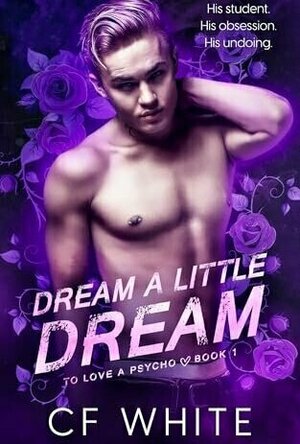
Dream a Little Dream (To Love a Psycho #1)
Book
His student. His obsession. His undoing. “Aaron Jones was a spark in the dark. Beautiful....
Dark MM Romance Contemporary Psychological Thriller
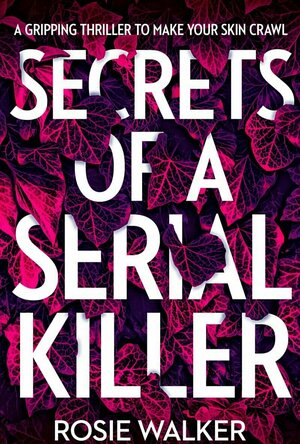
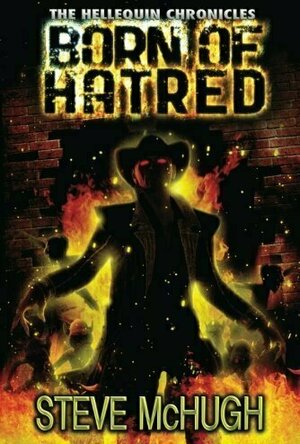
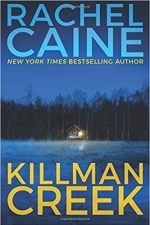
![Lost Graves (Boyle & Keneally #2) [Audiobook]](/uploads/profile_image/317/9e668096-6135-4694-b257-30976a5be317.jpg?m=1644157499)
